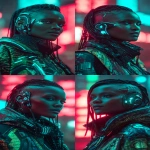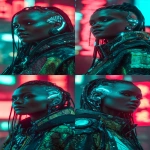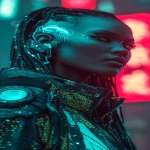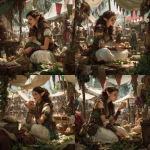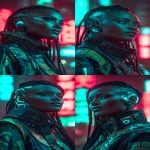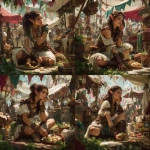Explore the Best AI Image Gallery
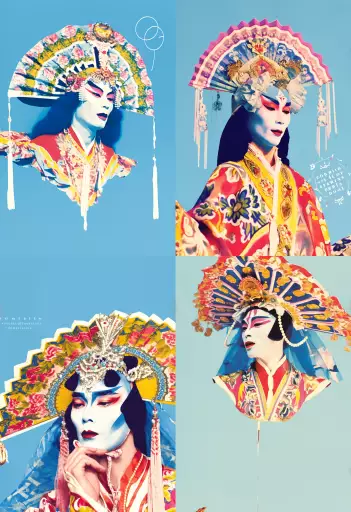
Beyond the Brush: Exploring AI-Generated Media and its Impact on Creativity
The realm of creativity is undergoing a seismic shift as artificial intelligence (AI) steps onto the canvas. AI-generated media, encompassing everything from text and music to images and videos, is no longer a futuristic concept but a tangible reality with profound implications for the creative industry. This revolution presents both exciting opportunities and complex ethical challenges that demand careful consideration.
The Creative Potential Unleashed
AI-powered tools are democratizing creativity, empowering individuals without specialized training to generate compelling content. Imagine an aspiring artist who can leverage AI algorithms to bring their artistic vision to life, or a musician who can collaborate with AI to compose intricate melodies. These tools can act as powerful catalysts, accelerating the creative process and pushing the boundaries of whats possible.
Here are some key applications of AI-generated media in the creative industry:
- Visual Arts: AI algorithms can generate unique artwork in various styles, from abstract paintings to photorealistic images. This opens up new avenues for artistic expression and allows artists to explore unconventional concepts.
- Music Composition: AI-powered tools can compose original music pieces in different genres, assisting musicians in generating melodies, harmonies, and even entire song structures.
- Film and Video Production: AI can be used to create realistic special effects, generate video game assets, and even produce short films. This has the potential to revolutionize the filmmaking process and make it more accessible.
- Writing and Storytelling: AI can assist writers in generating creative content, brainstorming ideas, and overcoming writers block. It can also help create interactive narratives and personalized stories.
Navigating the Ethical Landscape
While the potential of AI-generated media is undeniable, it also raises a number of ethical considerations that require careful attention:
- Copyright and Ownership: Questions arise regarding the ownership of AI-generated content. Who holds the copyright—the user who provides the input, the developer of the AI algorithm, or the AI itself?
- Bias and Representation: AI algorithms are trained on vast datasets, which can contain biases that reflect societal stereotypes and prejudices. This can result in AI-generated media perpetuating harmful representations.
- Authenticity and Trust: The increasing prevalence of AI-generated content raises concerns about authenticity and the ability to distinguish between human-created and AI-generated works. This can erode trust in creative content and impact its value.
- Job displacement: As AI takes on more creative tasks, there are concerns that it could lead to job losses in the creative industry. Its crucial to consider the societal impact of these technological advancements.
Shaping the Future of Creativity
The convergence of AI and creativity is still in its early stages, but it has the potential to reshape the creative landscape in profound ways. As we move forward, its essential to:
- Promote ethical development and use of AI: Establish guidelines and regulations that address the ethical challenges associated with AI-generated media, ensuring fairness, transparency, and accountability.
- Foster collaboration between humans and AI: View AI as a tool to augment human creativity rather than replace it. Encourage collaborations that leverage the strengths of both humans and machines.
- Educate and empower creators: Equip individuals with the knowledge and skills to navigate this evolving landscape, understanding the capabilities and limitations of AI-generated media.
- Embrace continuous innovation: Encourage research and development in the field of AI and creativity, exploring new applications and pushing the boundaries of whats possible.
AI-generated media has the power to unlock new realms of creative expression and transform the way we create and consume content. By embracing its potential while addressing its ethical complexities, we can shape a future where technology empowers human creativity and enriches our lives in profound ways.
](https://images.ai-img.art/thumbnails/150/ffdc3aeb085cdd89cb67916c26208f25e7c7b0250ad6e5877b48414760697a90.webp)
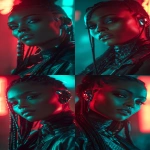
](https://images.ai-img.art/thumbnails/150/0791636c23fa42b3fd87dbe2541b7d3047cdb4d5fc0dab19f4efcfe1439963da.webp)
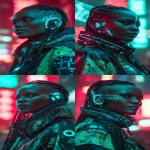
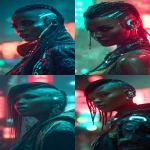

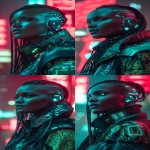
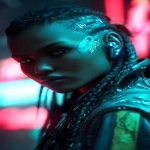

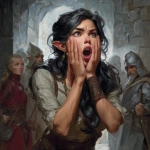
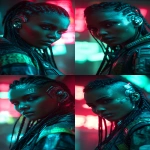
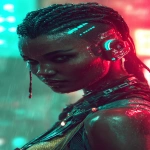
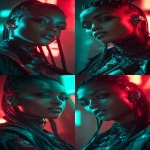

](https://images.ai-img.art/thumbnails/150/08baaaca8d12502f281846feba6b0cf89edf106843ff56346812f5eec39eeed1.webp)
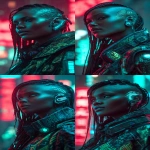

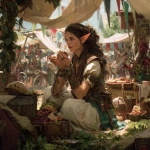


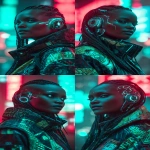
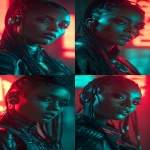
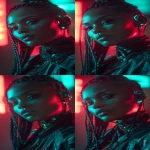

](https://images.ai-img.art/thumbnails/150/477a6a01318cd965f7f5f6ecc623f70e7e61f0004811369ce0977db761aecd57.webp)
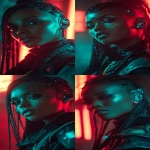

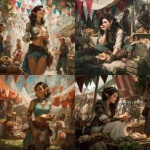

](https://images.ai-img.art/thumbnails/150/916a8f2aa9c13d051af4ab588a4921732f41e144150bdfc78853a28500cd717d.webp)
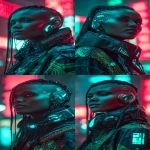

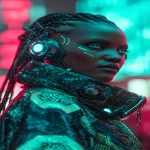
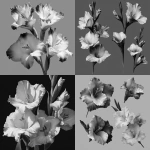
](https://images.ai-img.art/thumbnails/150/6b15b97ffd39aeb1b066fd2c8b33c1a2dd03a3966282ec6508e2c2c205c0360f.webp)
